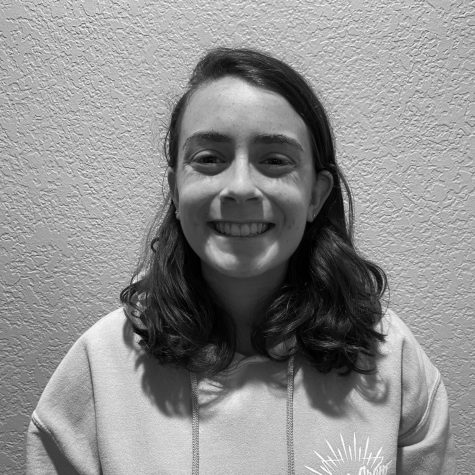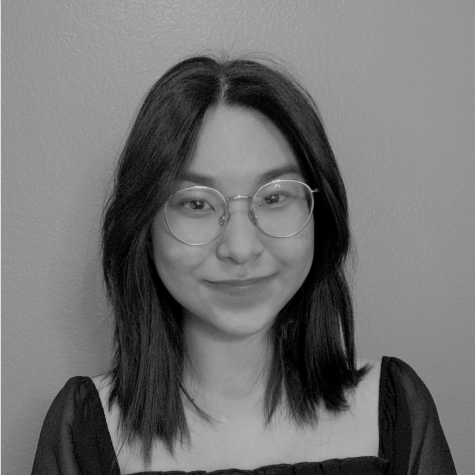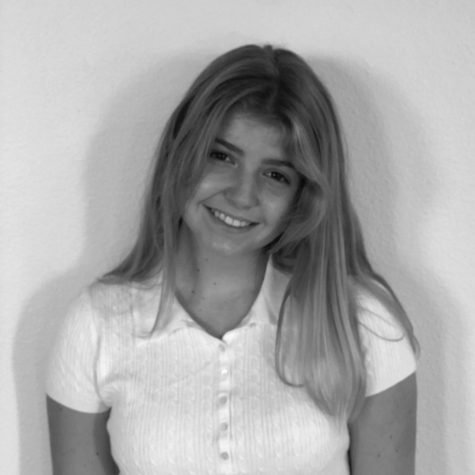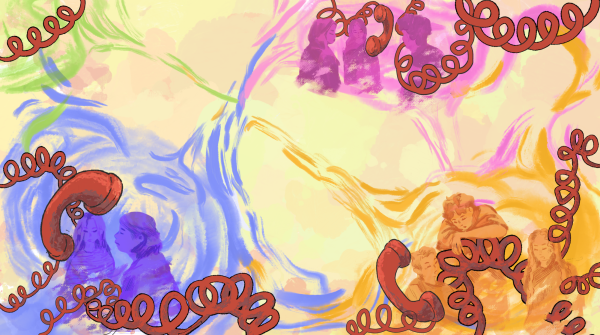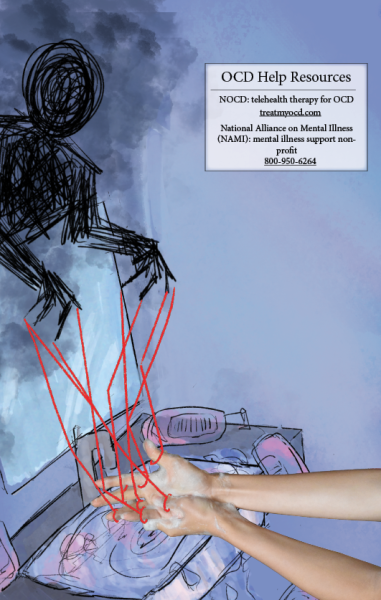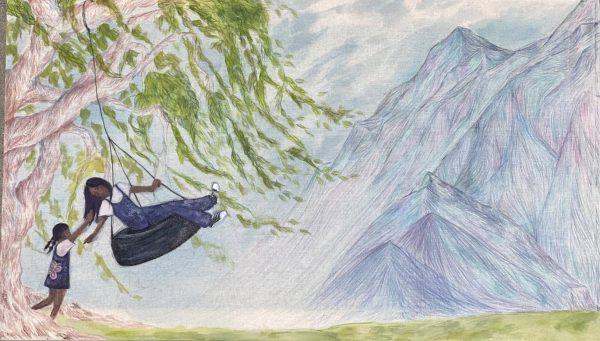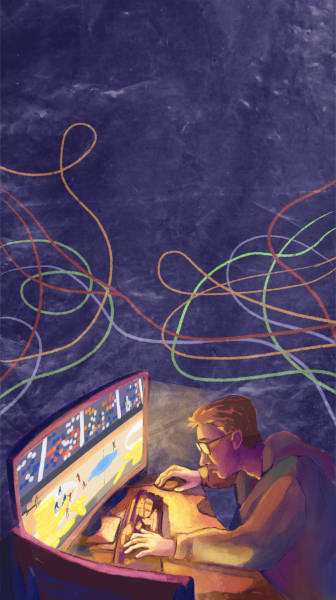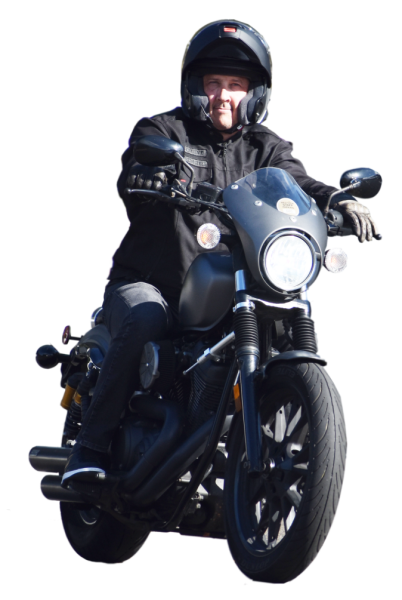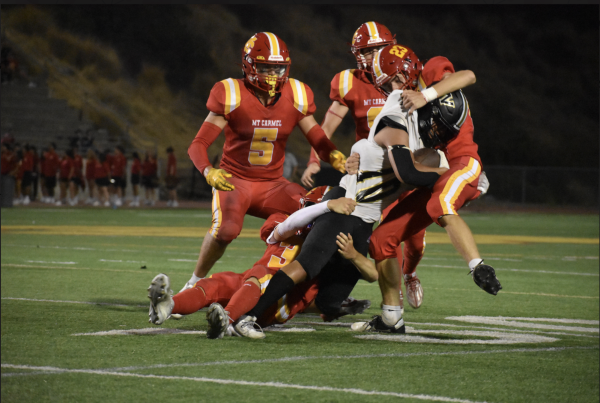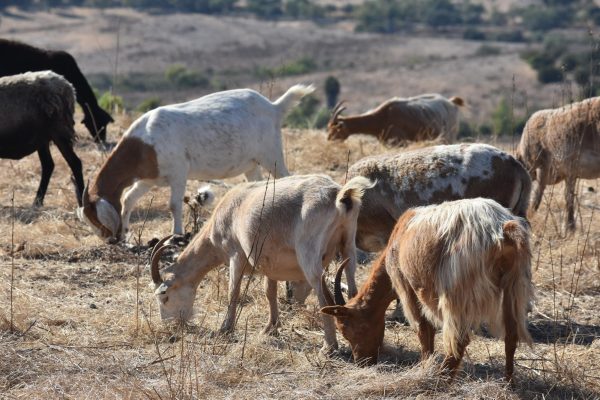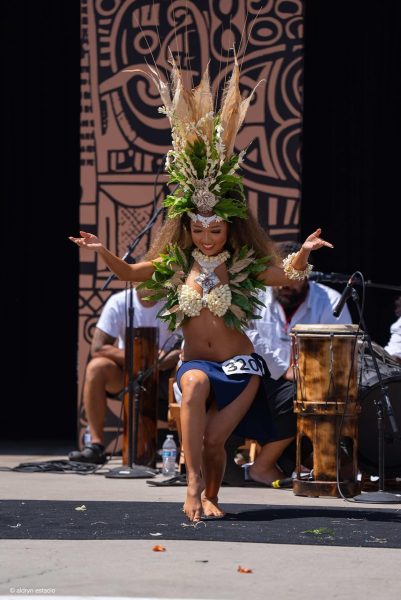Flying Solo: Students overcome pressure, choose nontraditional paths after high school
Instead of taking the more commonly trodden path of their classmates, seniors choose to travel, attend art school, study in Japan after high school.
Jacqueline Wagner (’21) did not expect to move to Germany right after graduating high school. When she was younger, she said, her plan was to study hard so that she would get the grades needed to get into a top college in the U.S.
“That’s not a bad dream to have,” Wagner said. “But I just don’t think that it was my own.”
Wagner said that she knows college is a big investment of money and time, one that she is not sure she is ready to commit to until she has a clearer idea of what academic path she wants to take. So, since traveling has always been a goal in her life, she said, she instead moved to Germany in April after she graduated early from Westview in January, giving herself time to travel and figure out what her passion is before continuing on her academic path.
“I know there are other options to travel, like studying abroad, but I knew that just wouldn’t be enough for me,” Wagner said. “I know there’s so many paths I could take, but I’m just not sure which one yet. And so I didn’t want to have to commit to a college where I’d end up regretting my decision thinking, ‘Oh, I shouldn’t have done this, but now I’ve wasted all this time and energy and money into the college so I can’t back out anymore.’ I knew that if I [prioritized traveling], where I would experience so many new things, and an entirely different country, a new culture, a new language and everything, that it would probably be one of the best ways for me to figure out exactly what my passion is, the passion that I want to study for years, and spend that much time on.”
Wagner said she still felt pressure throughout most of her life to focus solely on a four-year university as a part of her future path, mostly due to the educational environment she grew up in.
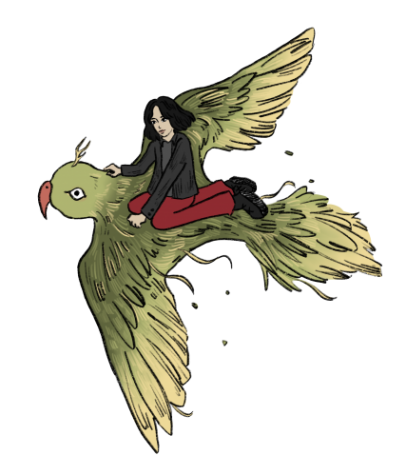
“You don’t have to start applying to colleges until you’re a senior, but really, you have to start thinking about it when you’re a junior and sophomore, because you need those teacher recommendations,” Wagner said. “And really, you should be starting those studying habits that lead you into good colleges when you’re in middle school. It’s like ever since the age of 12, there’s this idea of whatever you’re doing now, it’s only to get to college. The idea of going to American college is kind of crammed down your throat, even if that was never your goal, even if that wasn’t the path you wanted to take all along.”
Like Wagner, Erika McCann (12) was unsure about her academic goals. As her classmates talked about their dream colleges and careers with certainty, McCann said she often felt like the odd one out for not knowing what she wanted to do after high school.
“All my friends wanted to become doctors or lawyers or engineers, and I had no idea what I wanted to do or what I’m passionate about,” McCann said. “I think there definitely is pressure in high school to know certain things. When people would ask me, ’Erika, what are you going to do?’ and I tell them I don’t know, they would give me that look where they’re confused by the fact that I don’t know. And I was like, ’Am I supposed to know? I’m 16.’”
According to licensed clinical social worker Andrea Martel, students often feel this sort of distress when they decide to take a path with their life that is different from what is expected of them.
“[The pressure at Westview to attend a four-year university in the U.S.] puts a lot of pressure on teens to possibly be something, or do something that they’re not or not interested in,” Martel said. “If they are not succeeding at the same level as some of the people that they know, they also may feel less than, less worthy, less deserving.”
In her junior year, McCann said she realized that she didn’t have to pursue the same paths her friends were. So, after much consultation with her mom and consideration of her Japanese heritage, McCann decided to attend Ritsumeikan University in Kyoto, Japan and major in international relations and global affairs. The subject seemed like something that could benefit the world around her, McCann said, and she hoped to take advantage of her bicultural background to study on a much wider, global scale.
“Because I’m half Japanese and half white, I’ve grown up in both cultures, and I’ve learned a lot about the relationship between countries,” McCann said. “Especially right now with all the conflict that’s been going on in the world, I really want to learn more about this and use my experiences to help people in the future.”
Trinity Vu (’21), who will be attending Pratt Institute as a photography major in the fall, knew that she didn’t want to pursue a traditional route either. She runs a photography business doing commissions for bands and clothing brands, and said she has found relative success in doing this work. Because of this, she said that she wants to study photography and pursue it as a career, committing herself fully to the craft.
“I’m trying to think of it as an actual job,” Vu said. “Before it was just a side thing, but no, it’s not a side thing, this is my life.”
While photography is Vu’s passion, she said that the pressure from her peers created conflict between pursuing art and following along with everybody else.
“Everyone that I knew or was friends with my first half of high school was really focused on [going to college] and they were planning to go to a UC and stay in California and take a comp-sci major,” Vu said. “It felt kind of weird being the only person to do something that is different.”
Because none of her classmates were going through the same process or weighing the same factors as her, McCann also felt alone in her struggles. She often found herself agonizing over every possible way that things could go wrong.
“You just don’t know what’s going to happen in the future,” McCann said. “What if I go to Japan and I come back and they say ’Your degree is invalid?’ What if I can’t get a job? What if I drop out halfway through? There was a lot to think about, and if you go the traditional way [to an American college] you usually know more about what’s going to happen. You know how it’s going to play out and you know the different steps. There’s people you can ask. For me, that’s not the case.”
Martel said that in upper-middle-class communities, such as the one surrounding Westview, the pressure to go to an American university right out of high school is often greater than in lower-class communities.
“It is true that there is some societal pressure to get a degree because there is proof that if you have a college degree, you are more likely to make more money,” Martel said. “I think it also depends on socioeconomic class in which you feel more pressure than in a lower socioeconomic class where you don’t feel as much pressure because you may have other pressures that are more pressing.”
Facing this pressure, McCann said she often turned to her mom for advice. Even though there was no guarantee that everything would go perfectly, McCann’s mom assured her that nothing has to be permanent.
“As I was thinking about going to Japan, I almost felt like I won’t be able to come back and it’ll be like a point of no return, whether that’s good or bad,” McCann said. “But my mom told me, ’No, you can come back. You’re allowed to not like what you do. It’s okay to experience things just to experience them.’ I think she would have told me the same thing even if I went to school here.”
Unlike McCann’s parents, who were supportive of her decision to take a less traditional route, Vu’s parents were opposed to Vu studying photography. She said they frequently argued about her choice in major, even involving other family members, over whether she should go to art school or apply to a more local college and choose a STEM major.
“Every single time I would bring it up, it would be a terrible, long argument,’ Vu said. “My argument would be why would I ever want to do something that I don’t want to do. That literally makes no sense. And they were like, no, you have to be smart and reconsider your career choice.”
According to Martel, lack of parental support for goals can have a detrimental effect on students.
“[When a parent doesn’t support a child’s interests,] it lowers their self-esteem and feelings of self-worth if their parents are not accepting of who they are or what they want to do,” Martel said.
Both Wagner and Vu’s decisions were motivated less from advice from others, and more on increased self-reflection stemming from the onset of the pandemic.
“When the pandemic happened, I was just hit with my sense of mortality on a day-to-day basis,” Wagner said. “In a pandemic, you’re hit with a fear of death all of sudden, wondering if you are going to catch a deadly disease at the grocery store. So I was spurred into all of this: wanting to see more of the world and see what could happen next for me.”
Vu said that all of her self-reflection culminated in deciding to apply only to art schools in the fall. She said that she didn’t apply to any traditional schools because she didn’t even want to have the option to go there.
“I feel like if we were in school I definitely might have not chosen to go to art school because I would have been surrounded by the same vibe and idea about going to traditional college and getting a traditional degree,” Vu said. “During quarantine you waste a lot of time. I was like, ’I don’t want to waste any more time. I’m just sitting here. I need to do what I actually want to do.’”
Vu still had moments of doubt when only choosing to apply to art school, acknowledging that artists are not often known to make a lot of money.
“There have been points in time where I was thinking about everything that I did and I was like, ‘Am I just ruining my life right now by going to art school and choosing only to apply to art schools and not have any other backups?’” she said.
Despite the risk of taking an untraditional route, McCann said she ultimately decided that the experience in a different country would benefit her future. Ritsumeikan University’s international program allows her to study for three years in Japan and one year in Australia. On top of meeting new people and seeing new cultures, McCann said she feels that the challenge of immersing herself in Japan will be a rewarding personal experience.
“I’ll be in a different environment and I won’t be around things that I’m used to, which I think will allow me to grow in a lot of different ways,” McCann said. “If I find that I don’t really like the direction I’m going, I can always come back. There are opportunities everywhere.”
Despite the difficulties of taking an unique route, and the difficulty to come of being so far away from her family and friends, McCann said she is proud to have made a choice that distinctly suits her.
“It’s really important to think about living for yourself,” she said. “It sounds kind of cheesy, but it’s really hard to think about what you want to do and what’s best for you yourself. Even if it’s not what everybody else is doing, that’s fine, because you’re doing what you want to do.”
While McCann is pleased with the decision she made, she still struggled with the college application process that was so much different from those of her classmates in the U.S. She researched colleges that most people around her had never heard of. She navigated each college’s individual website to submit her transcripts and passport. When it came time for results to be released, she scrolled through the college’s site to see if her registration number was up on the screen. It was, and so she was accepted. No fancy letter or complimentary stickers or email with confetti, which was “a little anti-climactic,” she said.
“I feel like I’m missing out on the different experiences that my friends are going through, especially when it comes to joining group chats and finding a roommate and getting sweatshirts and visiting the campuses,” McCann said.
Wagner, too, said she felt somewhat isolated from her peers in making the decision to move to Germany, worried she would be misunderstood.
“I think a lot of people assume that if you don’t go to college right away after you graduate high school, you’re lazy, or that you don’t care about getting a higher education or something like that,” Wagner said. “And for some people, yeah, that’s true. And there’s also some people who are going to college who are lazy and don’t care about their education, and are only doing it for the wrong reasons. And I know, I do, definitely 100% want, at some point, to study, if it’s not going to be at a four-year university, it’s going to be in some kind of form. And I just am making sure that when I do go, it’s at the right time, and that it’s when it’s about something that I’m truly passionate about, and that I know I will make it worth my while. And it’s not just something that I’m doing because I think I have to go.”
Though COVID-19 restrictions in Germany have made it difficult for Wagner to travel the area as much as she planned, she can already see her perspective changing in small ways after moving.
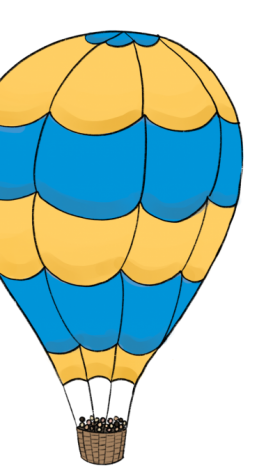
“It’s weird because since I’ve gotten here, I’ve been trying to think about whether I think the world has gotten bigger or smaller,” Wagner said. “I’ve traveled to a few different cities here and there and I’ve seen different castles and just different architecture and whatever, all these different places that I’ve never seen before and there’s so many new possibilities that I couldn’t even imagine until I’ve gone here. What happens when I go to the next new place? How many more possibilities will be there? And so I’m thinking about how [traveling] is changing how I view the world, and how I view myself and my possibilities.”
Wagner said that she has been changing far more imperceptibly than she anticipated, that her outlook on life did not change all at once after she moved.
“One expectation I had is that it’s going to be a whole new world. And yeah, everything’s different,” Wagner said. “But at the same time, you do the same things every day—you go shopping, you eat dinner, you cook, you clean you, whatever. I had this picture in my head of what it’s going to be like, in that it’s going to be all brand new and interesting and every day is going to be full of adventure and all that. And obviously, I’ve had adventures here, and I’ve had things that maybe change and whatnot, but at the same time, it’s like, you have to remember, it’s not just going to be some big grand shift, all of a sudden. You’re still doing the same basic maneuvers—it’s not a sudden change.”
Still, as she meets new people in Germany and sees new places, Wagner said she gets a better idea of what she wants to do with her life. It also becomes clear to her, Wagner said, that she wants to prioritize travelling even more.
“I have all these little moments where something happens that would never happen in San Diego, where I see something I would never see or someone says something I would never hear,” Wagner said. “And it just makes me want to travel more, to think about what types of moments like this I would have in France or Russia or something.”
Wagner, Vu, and McCann are all taking life paths they are passionate about, even if they are paths that others in their life, and maybe even themselves, never expected. According to Martel, following your passion is often essential for a healthy mental state.
“I think it’s always beneficial to be able to follow your passion and to do what makes you happy because the other [option] is, if you don’t do what makes you happy, you could end up with mental health issues, and then you’ll be seeing a therapist like me,” Martel said. “You [could] have mental health issues and feel depressed because you are not following your passions and you are doing things that somebody else has told you that you have to do. ”
Taking some of Martel’s advice, Vu said she is confident in pursuing her passion for photography.
“I’m just really determined to have the life I want to have,” Vu said, “and also to kind of show my parents and anyone else who thinks I’m crazy that I can actually do anything I want to in this world.”
Whether it’s art school, college in a foreign country, or another option altogether, the paths that Vu, McCann, and Wagner have chosen are far from traditional. But no matter how difficult the decision or unfamiliar the route, they have chosen to pursue their passions and explore their world.
